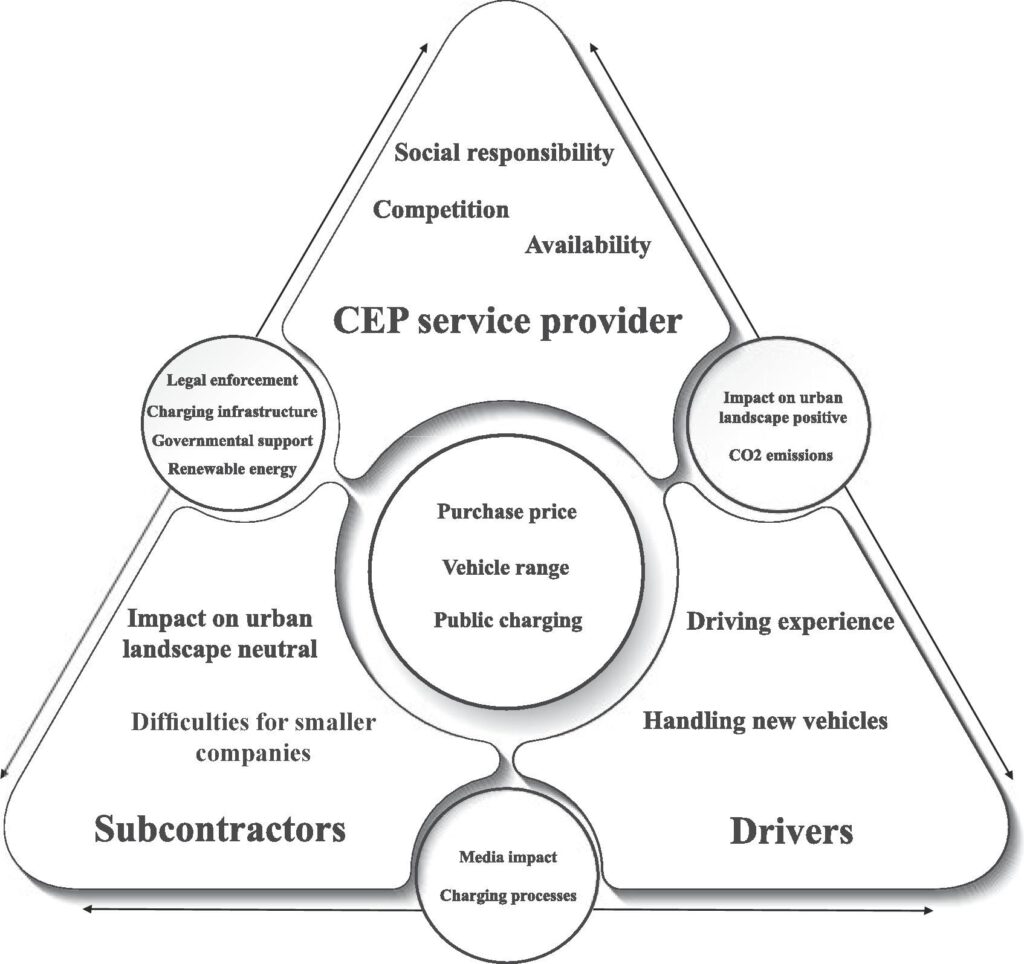Switching to electric vehicles to reduce CO2 emissions and preserve the environment is a common approach also being relevant to the last mile. However, establishing electric vehicles in the long term requires considering economic and social sustainability and ecological sustainability. Additionally, the last mile is characterized by different participants who must be considered for a holistic approach.
In recent research, 26 interviews (in 2021) with CEP service providers, subcontractors, and drivers were conducted to explore the sustainability of last-mile electrification. The study also revealed the importance of technical and process-related aspects, expanding the traditional sustainability triad; ecological, economic, and social. Furthermore, results indicate that economic sustainability is crucial in the last mile.

However, interview participants suggest that this is not yet achieved for ELCVs. Some interviewees’ attitudes are not aligned with current developments of electric vehicles. This disparity has led to significant theoretical and practical implications for the future of last-mile electrification.
